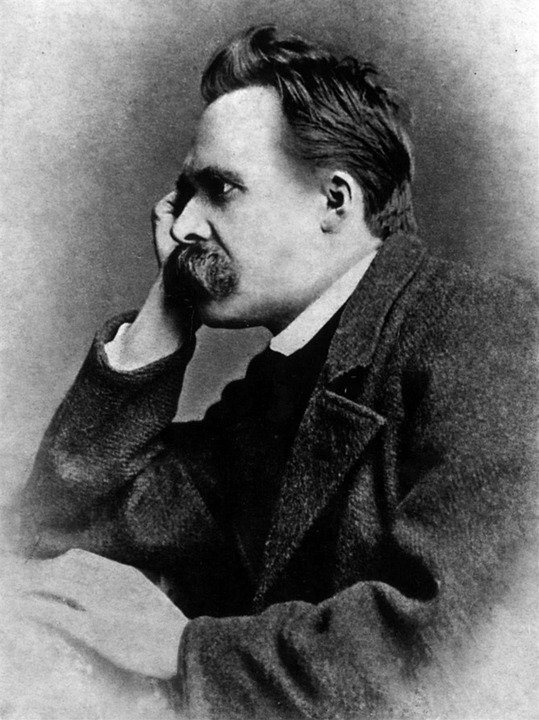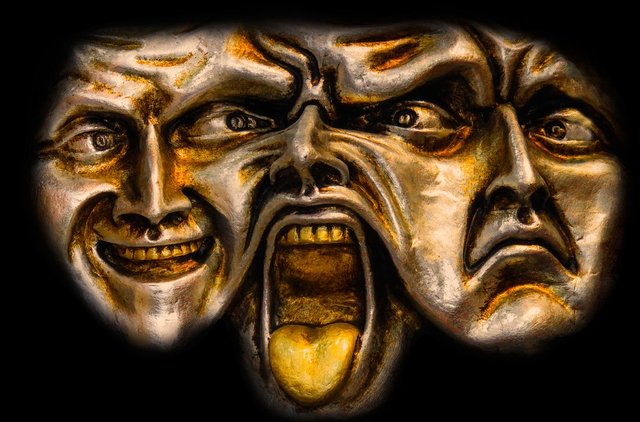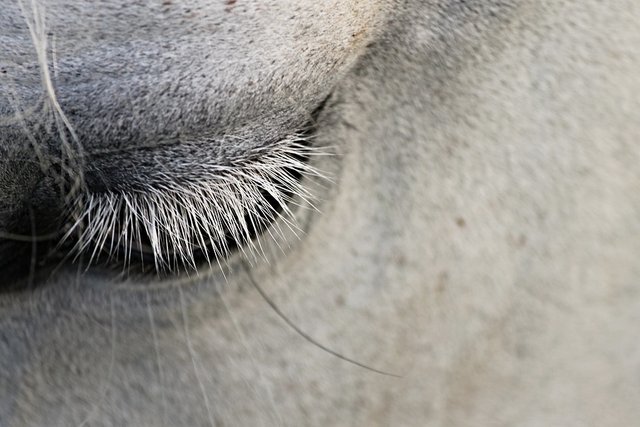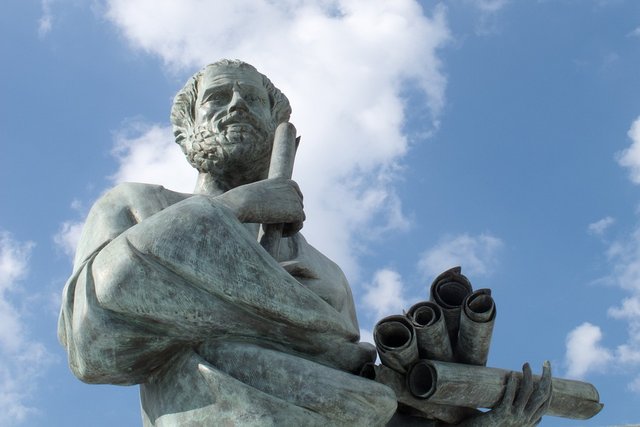

In literature, content tends to dictate form, so it is not without significance that Wilde and Nietzsche expressed themselves in similar fashion: in aphorisms, epigrams and maxims. These forms were practically invented by pre-Socratic Greek philosophers and mastered by French moralists. Vast thoughts could be carried condensed in these deceptively slight vessels. Moreover, their pithy phrasing ensured that they were memorable: “Whoever writes in blood and aphorisms does not want to be read but to be learned by heart. In the mountains the shortest way is from peak to peak: but for that one must have long legs. Aphorisms should be peaks – and those who are addressed, tall and lofty,” as Nietzsche writes in Zarathustra. Or in Twilight of the Idols he puts it this way: “Aphorisms, of which I am the first master among Germans, are the forms of ‘eternity’; my ambition is to say in ten sentences what everyone else says in a book – what everyone else does not say in a book.”
As a stylist, Nietzsche felt he was so good he spoiled the tastes of his readers, since they could enjoy no one after him; and that, along with the poet Heine, he would be regarded as the greatest stylist in the German language (he later added Goethe to this exclusive list). Wilde shared this incredibly high estimation of himself, once famously replying “Only my genius” to a US customs official’s standard question, “Do you have anything to declare?” In his long letter from prison, De Profundis, Wilde surveyed his life’s work approvingly: “I had summed up all systems in a sentence and existence in an epigram.” But, braggadocio aside, it is astounding how nearly indistinguishable some of Nietzsche’s and Wilde’s aphorisms are – almost interchangeable in form and substance. For examples:

“What fire does not destroy it hardens.” Wilde
“What does not kill me makes me stronger.” Nietzsche
“The simple truth, is that not a double lie?” Nietzsche
“The truth is rarely pure and never simple.” Wilde
“Public opinions exists only where there are no ideas.” Wilde
“To say it again, Public opinions, private laziness.” Nietzsche
“We possess art lest we perish of the truth.” Nietzsche
“The telling of beautiful untrue things is the proper aim of art.” Wilde
“Conscience and cowardice are really the same things.” Wilde
“Not to perpetrate cowardice against one’s own acts! Not to leave them in the lurch afterwards! The bite of conscience is indecent.” Nietzsche
“Discontent is the first step in the progress of a man or nation.” Wilde
“Every great progress must be preceded by a partial weakening.” Nietzsche

One of the central tenets that both Nietzsche’s and Wilde’s philosophies pivoted upon was the importance of style. In an aphorism entitled, ‘One thing is needful’, Nietzsche states his strategy: “To give style to one’s character – a great and rare art! He exercises it who surveys all that his nature presents in strength and weakness and then moulds it to an artistic plan until everything appears as art and reason, and even the weaknesses delight the eye.” Both Wilde and Nietzsche presented themselves with great flair and wore their learning lightly, their deep erudition seamlessly transformed into something poetic.
To accommodate their multidimensional personalities, both employed a multi-dimensional style, prompting their detractors to refer to them as the most uneven of great writers. Opposed to mandatory moral law, it was for stylistic reasons that both borrowed Biblical thunder and cadences, Nietzsche for Zarathustra, Wilde in Salome, adapting religious phraseology to suit their peculiar temperaments. It is worthwhile to note that they both held inordinately high views of these works. Wilde was more proud of Salome (“this scarlet piece which I in some strange mood wrote”) than any of his other plays; and Nietzsche unequivocally declared Zarathustra “the greatest gift to mankind.”
As master stylists, they possibly both wrote too well for their own good, allowing themselves to be maddened by their own music – intoxicated with their own verbosity. Highly attuned as they were to the musicality of words, they may at times have permitted style to dictate content, or to eclipse substance. In a letter written in 1884 to an old friend, Erwin Rohde, Nietzsche confesses, “My style is a dance, it plays with all sorts of symmetries, only to leap over and scoff at them. This applies even to the choice of vowels.” And Gide’s critique of Wilde’s style could also apply to Nietzsche: “the glittering of the surface makes our mind lose sight of the deep central emotion.” Shaw seconded this sentiment regarding Wilde, slightly amending it: “[Wilde] was so in love with style, that he never realized the danger… of putting up more style than his matter would carry.”
Nietzsche christened his approach Die Fröhliche Wissenschaft, which means ‘the gay science’ (though it is also translatable as ‘joyful wisdom’). It is a worldview in praise of light-heartedness or esprit (witty intelligence). Wilde shared in this playful philosophy which advocated exuberance, buoyancy and a sustaining sunny humor. (Neither was averse to a little playful malice, as well.) They both retained to a high degree the childlike faculties of wonder, joy, and belief in the impossible. This is evidenced in Wilde’s many improbable utterances and his delightful persona of boyish immaturity, as much as in his enchanting short stories for children. The Argentine poet and author Jorges Luis Borges spoke of Wilde’s ‘invulnerable innocence’. And in Beyond Good and Evil, Nietzsche defines mature manhood as “that means to have rediscovered the seriousness one had as a child at play.”

Along with innocence, Nietzsche and Wilde’s ‘innocence’ also represented irreverence, a sense of fun, and the license to poke fun. “Not by wrath, but by laughter, do we slay. Come, let us slay the spirit of gravity” – thus spake Nietzsche’s Zarathustra. In a letter, Nietzsche put it still more mischievously: “I hang a little farcical tail on to the most serious things.” This is a sensibility amply echoed by Wilde: “Life is too important to be taken seriously” as he writes in Lady Windermere’s Fan. In the final equation, their answer to profound problems was a stylistic one: aesthetics over ethics. To achieve this, they often found it necessary to return to the surface of things.

Above all, Nietzsche and Wilde were great lovers of life, anachronistic Greeks in their adoration of the sun as life-force and their heady vitalist philosophies sensually imbued with a this-worldly spirituality. Likewise, in their deep belief in the wisdom of the body they echoed the Ancient Greek ideal of the dependence of a healthy mind on a healthy body:
“Oh, those Greeks! They knew how to live. What is required for that is to stop courageously at the surface, the fold, the skin, to adore appearances, to believe in forms, tones, words, in the whole Olympus of appearance. Those Greeks were superficial – out of profundity.”
This is not Wilde waxing poetic, but Nietzsche waxing philosophic. Of course, this is also the very same aesthetic philosophy Wilde championed: “It is only shallow people who do not judge by appearances” (Picture of Dorian Gray). Moreover, refinement and taste were prized: “All of life is a dispute over taste and tasting,” Nietzsche has Zarathustra say. Such an aestheticism was not only an interpretation of life, but a philosophy for life.
Nietzsche and Wilde may have also been ‘superficial out of profundity’ in yet another way, if we allow that their preference for appearances may have been informed by Kant’s skepticism propounded in his Critique of Pure Reason (1781). According to this doctrine, we never know things as they are, but only as they appear to be. In this context, their resolve to stop courageously at the surface might not seem so unwise.
On another level, according to Alexander Nehamas’ study of Nietzsche, Life as Literature, Nietzsche’s aestheticism entailed a tendency for him to view the world in general as a work of art, and as a literary text in particular, populated by literary characters, including himself. Reading and writing were Nietzsche’s substitutes for living and loving, and he lived for and through the written word, as well as learned from and argued with books. Nehamas writes, “his use of and emphasis on style is itself part of his effort to undermine the distinction between form and content in life as well as writing.”
Merging life with literature was second nature to Wilde too, who openly admitted to performing his life. He felt life imitated art far more than vice versa, and said to Andre Gide, “My life is like a work of art.” And although as a wit about town he certainly got out more than the reclusive Nietzsche, he confessed in De Profundis: “I treated art as the supreme reality and life as a mere mode of fiction.” Or, as he has Gilbert argue in The Critic as Artist, “When a man acts, he is a puppet. When he describes, he is a poet.” There is much of Nietzsche within this verbal universe, affirming the supremacy of language, reclaiming power from fate through eloquent and articulate expression.
In Nietzsche we have the philosopher as performance artist, communicating in jokes, riddles, parables, poems, songs or aphorisms. In Wilde, it is the artist as performing philosopher, having made “art a philosophy and philosophy an art” as he wrote in De Profundis. Or, in the uncharacteristically lavish praise of the usually cantankerous George Bernard Shaw, “In a certain sense Mr Wilde is to me our only thorough playwright. He plays with everything: with wit, with philosophy, with drama, with actors and audience, with the whole theatre” (reviewing Wilde’s An Ideal Husband in the Saturday Review, January 12, 1895). Following Wilde’s death, his friend Max Beerbohm wrote: “He came as a thinker, a weaver of ideas… Theatrical construction, a sense of theatrical effects, were his by instinct” (Saturday Review, December 8, 1900).


However, for both men, the discrepancies between the private truth and the public façade were considerable. Beyond style, there were personal struggles, and personas fraying. “Body and soul, I am more of a battlefield than a human being,” Nietzsche admitted. Wilde too was riddled with warring impulses. Yet if there are structural weaknesses in Wilde’s or Nietzsche’s thinking, it is because the edifices of their philosophies are built on a fault line. Paradoxically, despite their almost aggressive individualism, both viewed the self as something to be mistrusted or feared, and sought to transcend the personal and dissolve or diffuse their personalities through the deployment of masks.
Profoundly antagonistic to what was most profoundly related to him, Nietzsche denounced loudly what was deeply rooted in him and what he possessed in excess, namely: pity, piety and morality. In Conversations with Nietzsche, Lou Salomé (whom he referred to as his ‘twin soul’) noted at the very beginning of their acquaintance (1882) that he was of a religious nature.
Later she wrote, “Today I would want to underscore this expression doubly… We will experience it yet that he will step forth as the proclaimer of a new religion, and then it will be such a one as recruits heroes to be its disciples.” Of Salomé herself, Nietzsche the self-styled ‘immoralist’ would write in a draft of a letter to their mutual friend Paul Rée: “She told me herself that she had no morality – and I thought she had, like myself, a more severe morality than anybody.” Nietzsche’s collapse in the street, insane, as he wept with his arms flung around a tired old horse to shield it from whipping, is a pathetic portrait of pity.

Nietzsche’s caustic remarks on asceticism, weakness, and idealism, or his vitriol for German culture in general, are also best understood as inner threats. For, despite often highly-charged sexual metaphors, and his condemnation of the preaching of celibacy as a sin against life, his life remained essentially sexless. Likewise, for all his vaunted celebration of Dionysus and his repeated praise for dancing, he neither drank nor danced (although during his insane years he practiced an impressionist form of dance).
Nietzsche’s mad letters make for particularly vivid reading – heavens rejoicing and everything transfigured, the landscape populated with satyrs and festival animals – because, I suspect, only in madness was he able to realize his ideal of the ‘god who dances’. A more commanding writer than speaker, the two faculties appear to have fused during the early months of his insanity. Shortly after his mental collapse in 1889, Nietzsche was exhibited to a classroom of medical students, and one of the students noted, “We had never heard a man speak this way… I had just felt the magic power of the Nietzsche style for the first time. For he spoke as he wrote: short sentences full of peculiar word combinations and elaborate antitheses.”

Perhaps slightly begrudging Wilde his fame and posthumous status as a martyr, Shaw indulges in a hypothetical exercise: how would Wilde have been seen by posterity had he died before his tragedy (ie, his scandal and imprisonment)? In Shaw’s estimation, “Oscar would still have been remembered as a wit and a dandy, and would have had a niche beside Congreve in the drama. A volume of his aphorisms would have stood creditably on the library shelf with La Rochefoucauld’s Maxims.” What of Nietzsche minus his tragedy (ie, if he had died sane)? That is hard to know, but he would still have cut a dashing figure in the annals of both literature and psychology, and had at least a niche beside modern philosophers too, judging by the controversy beginning to surround his name during his last pre-collapse year.
As extremists, both recognized that extremes are closer to one another than the middle path of moderation which so eluded them. Or, in Nietzsche’s words, “Extreme positions are not succeeded by moderate ones, but by contrary extreme positions.” In Will to Power, he elaborates, “the spell that fights on our behalf, the eye of Venus that charms and blinds even our opponents, is the magic of the extreme, the seduction that everything extreme exercises… we immoralists – we are the most extreme.” Both men were bewitched by extremity in this way, and, in seeing both sides of an argument at once, occasionally risked becoming philosophically cross-eyed. The result was ideas that sometimes not only appeared profoundly confusing, but confused.
In Schopenhauer as Teacher, Nietzsche had written, “I care for a philosopher only to the extent that he is able to be an example.” This is what emerges from the texts of Nietzsche and Wilde: each in their own unusual way managed to create of themselves a prodigious example, or a living sign, entrusting to posterity their peculiar personalities, of which their works are a part. Focusing on Wilde the gifted storyteller and brilliant talker, Gide characterized him as “a great viveur… like the philosophers of Greece, Wilde did not write but talked and lived his wisdom.”

Concerning his interest in a writer or thinker (in this case, Nietzsche) critic Georg Brandes writes, “My first question is this: What is the value of this man, is he interesting, or not? If he is, then his books are undoubtedly worth knowing. Questions of right or wrong are seldom applicable in the highest intellectual spheres… We are not children in search of instruction, but sceptics in search of men.” This is a mature position to adopt towards both Nietzsche and Wilde. Certainly they are interesting, whether or not they were right or wrong. The question of their value is a larger one. Ultimately, these questing spirits, interrogating traditional answers concerning how we live and what we think we know, were both philosophers in the Socratic sense, in that they raised more questions than they answered.
Undoubtedly, we do not find them as outrageous as they were to 19th century sensibilities. Rather, in our age skeptical of absolutes and susceptible to a plurality of interpretations, we consider them contemporaries whose experiments with values mirror our own. Even in their contradictory works we recognize, writ large, the wonderful and complex workings of the human psyche. Thus as agents of regeneration who live on in us, their currency renews their value, rendering them, at the very least, as relevant today as they were over a century ago.
© Yahia Lababidi
(Images: Pixabay)

Thank you for this very insightful article about two men I truly admire - and also for the wonderful formatting by @grow-pro
Downvoting a post can decrease pending rewards and make it less visible. Common reasons:
Submit
Many thanks for your kind words, @atmosblack. I admire the work of quality authors and when I came across @yahialababidi, I was happy to help. This is truly fine work and I will not only encourage creators that produce fine work, but I will support them in every way within my power.
The world needs more wonderful works ✌️😎
It's a pleasure to help multiply that!
Downvoting a post can decrease pending rewards and make it less visible. Common reasons:
Submit
You´re very welcome. Maybe you want to think about offering some kind of "formatting course" for steemit? I still find it somehow difficult to get into it and I´m sure there are many people who would profit from that! Cheers!
Downvoting a post can decrease pending rewards and make it less visible. Common reasons:
Submit
You're grand, @grow-pro, and an example of what's best on this platform! Thank you, for your incredibly kind and patient support, and may you be seen/helped as selflessly as you do others.
Cheers, Yahia
Downvoting a post can decrease pending rewards and make it less visible. Common reasons:
Submit
How wonderful to find a fellow admirer of those 2 great contrarians :) Something of a demanding post, I realize, but also rewarding (I hope) since it is also about much else - Literature, Philosophy etc... besides those authors.
Yes, formatting by @grow-pro is a real boon! A pro and generous soul to boot; I feel it elevates my piece.
Downvoting a post can decrease pending rewards and make it less visible. Common reasons:
Submit
Ok you really got me with this one! Both Wilde and Nietzsche are amongst my favorite writers, and to my shame I've never even considered that they were contemporaries, or the similarities between them, which you point out quite well!
The writer in me can't help but wonder what a conversation between the two might have looked like. A battle of aphorisms? Maybe I should write it, if no one else has yet.
My most favorite of Wildes' work is 'The Soul of Man under Socialism' which is so far ahead of it's time it's insane. Same goes for Nietzsches' texts, though with him society at large will still need a couple of centuries to completely understand all of his implications.
I might argue a bit with the part about Nietzsches' style, as usually when I read Nietzsche I feel there's a lot more substance than style, but you don't directly deny this.
Great read, I will follow you and hope you post a similar article sometime in the future!
Downvoting a post can decrease pending rewards and make it less visible. Common reasons:
Submit
Nietzsche himself admitted he composed his sentences according to the sounds they made, and disparaged his inner poet and artist, repeatedly, as inferior to the thinker.
But this is quibbling... What a thrilling, and ambitious, undertaking to imagine a battle of aphorisms between those two (something we might collaborate on?) Exciting to consider!
Shaw did not give Wilde much credit, but spoke highly of his 'Soul of Man Under Socialism'. Thank you, for taking time and care to read this somewhat demanding piece and welcome aboard. Hope my musings continue to keep you good company, @ul1yck1t and, until I post next essay, you might enjoy something here: https://steemit.com/my2017top5/@yahialababidi/my-2017-top-5-posts-immigration-inspiration-fiction-sex-and-birds
Cheers, Yahia
Downvoting a post can decrease pending rewards and make it less visible. Common reasons:
Submit
Salute to you for writing such a long post. It took me 15 seconds to just scroll down. Wish I could read it. Just stopped to say Hi to you. Keep up the good work. Love. Peace.
Downvoting a post can decrease pending rewards and make it less visible. Common reasons:
Submit
Hi! I am a robot. I just upvoted you! I found similar content that readers might be interested in:
https://philosophynow.org/issues/94/The_Twin_Souls_of_Oscar_Wilde_and_Friedrich_Nietzsche
Downvoting a post can decrease pending rewards and make it less visible. Common reasons:
Submit